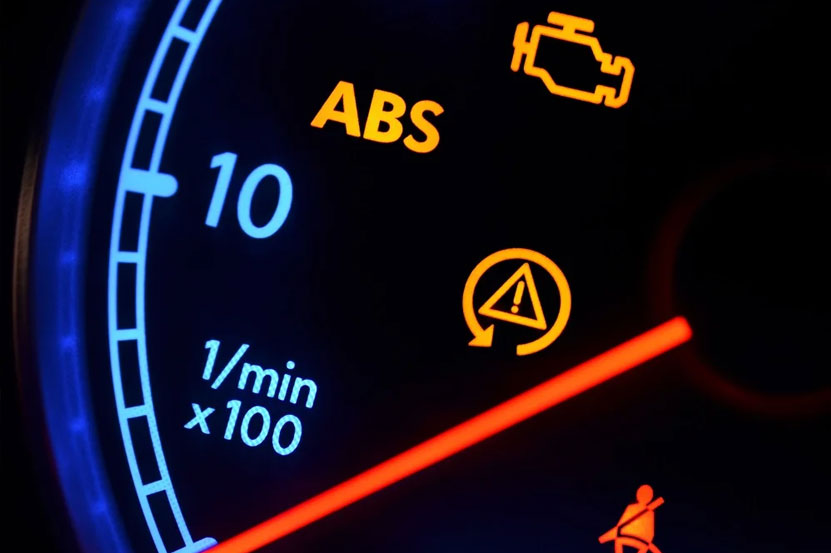The check engine light is one of those dashboard indicators that can make any driver feel a bit uneasy. When it lights up, it usually means your Jeep Compass is trying to tell you something important about its health. But what exactly does it mean? And what should you do when it happens? Let’s break it down in simple terms.
What is the Check Engine Light?
The check engine light, often shaped like an engine, is a signal from your Jeep Compass’s onboard diagnostics system. This system continuously monitors your vehicle’s performance, particularly the engine, and emissions system. When it detects something unusual or out of the ordinary, it triggers the check engine light to let you know there’s an issue that needs attention.
Common Reasons for the Check Engine Light
There are many potential reasons why the check engine light might come on in your Jeep Compass. Some are minor and easily fixed, while others could be more serious. Here are a few of the most common causes:
- Loose or Faulty Gas Cap: This might seem trivial, but a loose or damaged gas cap can cause the check engine light to turn on. The gas cap seals the fuel system and helps maintain pressure. If it’s not on properly, fuel vapors can escape, leading to decreased fuel efficiency and increased emissions.
- Oxygen Sensor Issues: The oxygen sensor measures the amount of unburned oxygen in your vehicle’s exhaust system. If it fails, the engine may run less efficiently, burning more fuel than necessary. This could also increase emissions, which is why the check engine light comes on.
- Faulty Spark Plugs or Wires: Spark plugs ignite the air-fuel mixture in the engine’s cylinders. If they’re worn out or the wires are damaged, your Jeep Compass might misfire, leading to engine performance issues and a lit check engine light.
- Mass Airflow Sensor Problems: The mass airflow sensor helps determine how much air is entering the engine, which affects the fuel mixture. A faulty sensor can lead to poor fuel economy, rough idling, or difficulty starting the vehicle.
- Catalytic Converter Issues: The catalytic converter helps reduce harmful emissions from your Jeep Compass. If it’s not working correctly, your vehicle might fail an emissions test, and you’ll likely notice decreased performance and fuel efficiency.
- Battery or Charging Issues: Sometimes, the check engine light can be triggered by a problem with your battery or charging system. This might happen if your battery is running low or if there’s an issue with the alternator.
What Should You Do When the Check Engine Light Comes On?
Seeing the check engine light on your Jeep Compass’s dashboard can be stressful, but it’s important not to panic. Here’s what you should do:
- Check for Simple Issues: Start with the basics. Check if your gas cap is loose or damaged. If it’s not on properly, tighten it and see if the light goes off after driving for a bit.
- Observe Your Jeep’s Performance: Pay attention to how your Jeep Compass is running. Are there any unusual noises? Is it driving differently? If everything seems normal, it might be a minor issue, but it’s still a good idea to get it checked out soon.
- Use an OBD-II Scanner: If you have access to an OBD-II scanner, you can use it to read the diagnostic trouble codes (DTCs) stored in your vehicle’s system. These codes can give you a better idea of what’s wrong. If you don’t have a scanner, many auto parts stores offer this service for free.
- Don’t Ignore It: Even if your Jeep Compass seems to be running fine, don’t ignore the check engine light. It’s there for a reason. A minor issue can turn into a major repair if left unattended.
- Visit a Professional: If you’re unsure about what’s causing the light to come on, or if the issue seems more serious, it’s best to take your Jeep Compass to a professional mechanic. They can diagnose the problem and recommend the appropriate repairs.
Is It Safe to Keep Driving?
Whether it’s safe to keep driving when the check engine light is on depends on the issue. If the light is steady and your Jeep Compass seems to be running normally, you can likely drive it for a short time. However, if the light is flashing or if you notice any changes in performance, it’s best to pull over and seek assistance. A flashing check engine light often indicates a more serious problem, like a misfire, which could damage your engine if you continue driving.
Preventing Future Check Engine Light Issues
While some check engine light issues are unavoidable, regular maintenance can help prevent many common problems. Here are a few tips:
- Keep Up with Scheduled Maintenance: Follow your Jeep Compass’s maintenance schedule, including oil changes, spark plug replacements, and air filter changes.
- Use Quality Fuel: Fill up with high-quality fuel to help prevent issues with the fuel system and emissions.
- Replace Parts as Needed: Don’t delay replacing worn-out parts like spark plugs, oxygen sensors, or the battery.
Final Thoughts
The check engine light on your Jeep Compass is more than just an annoying glow on your dashboard—it’s your vehicle’s way of telling you something needs attention. While it’s not always a sign of a major problem, it’s important to take it seriously. By understanding what the light means and taking the right steps, you can keep your Jeep Compass running smoothly and avoid more costly repairs down the road. So, the next time you see that little light, you’ll know exactly what to do.

